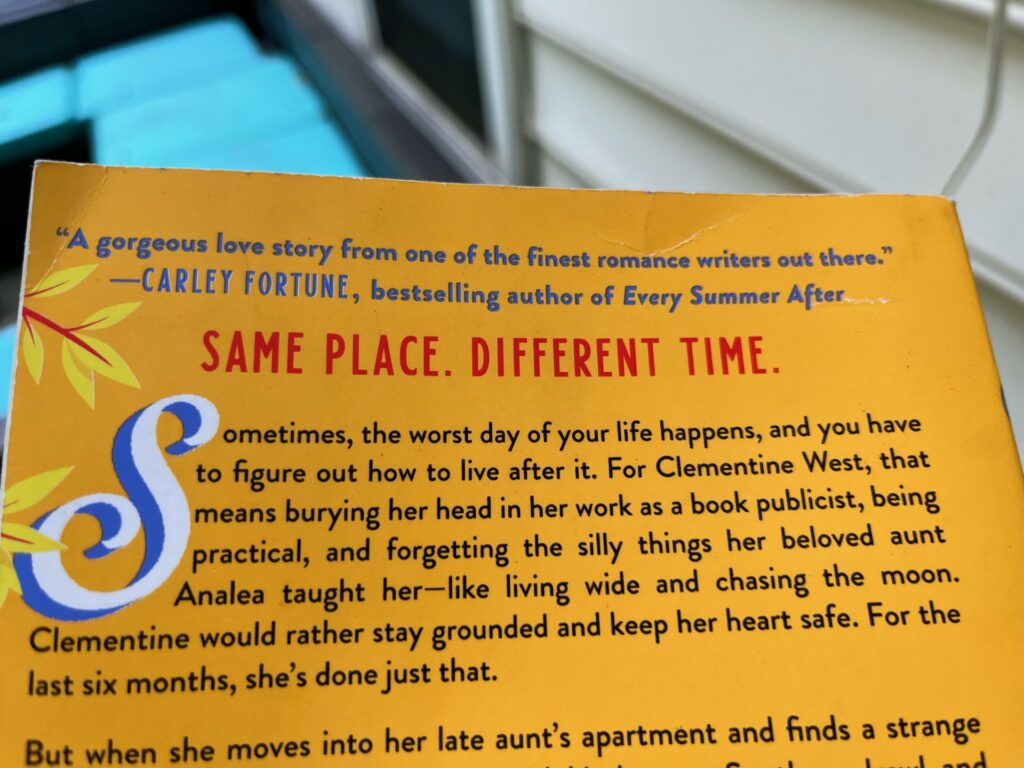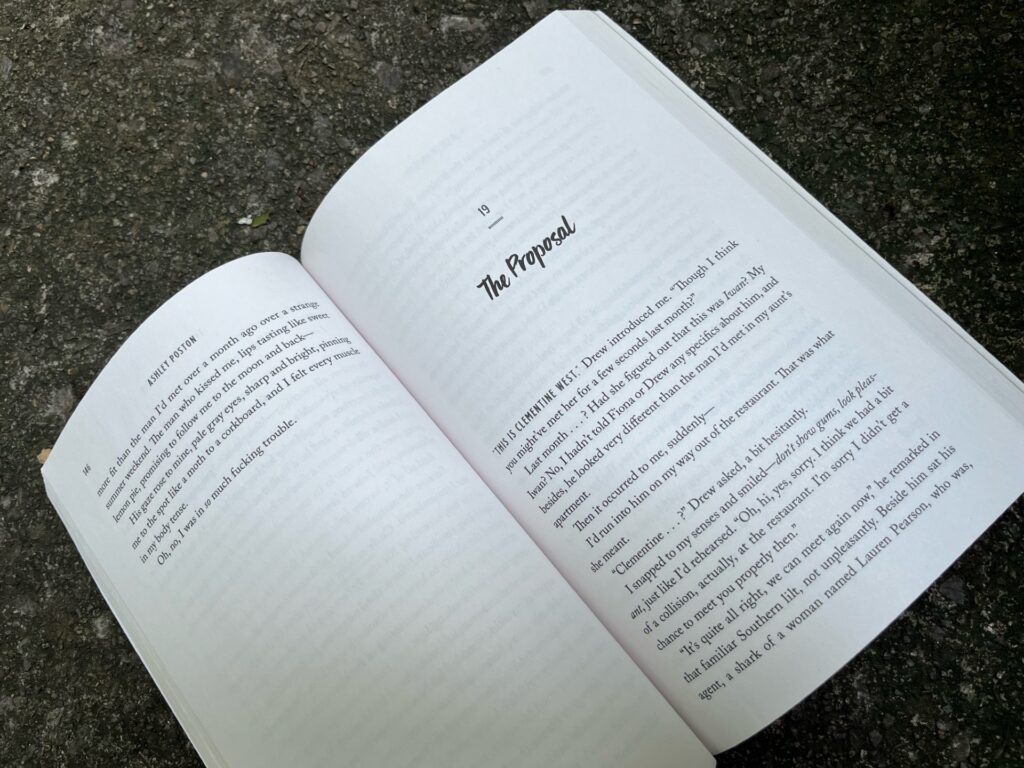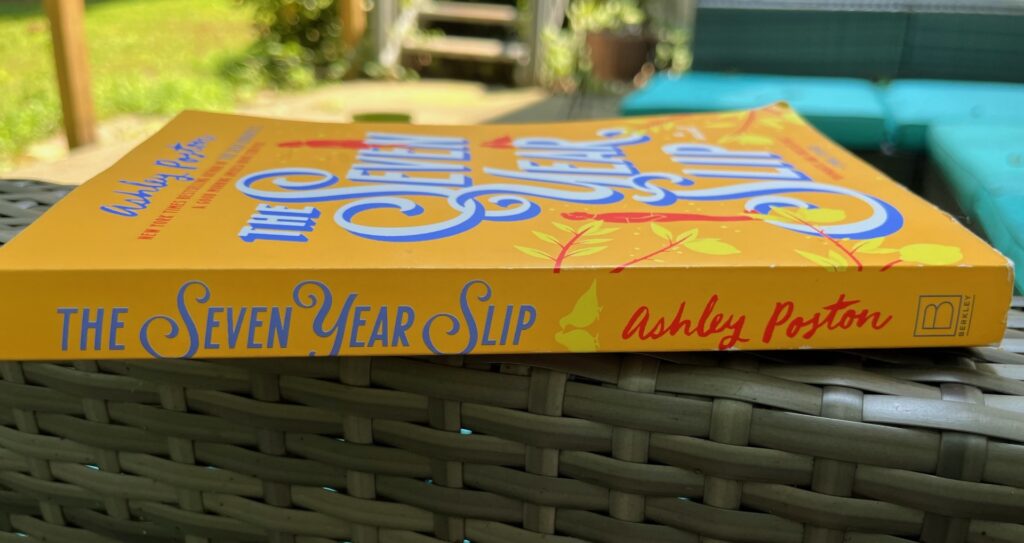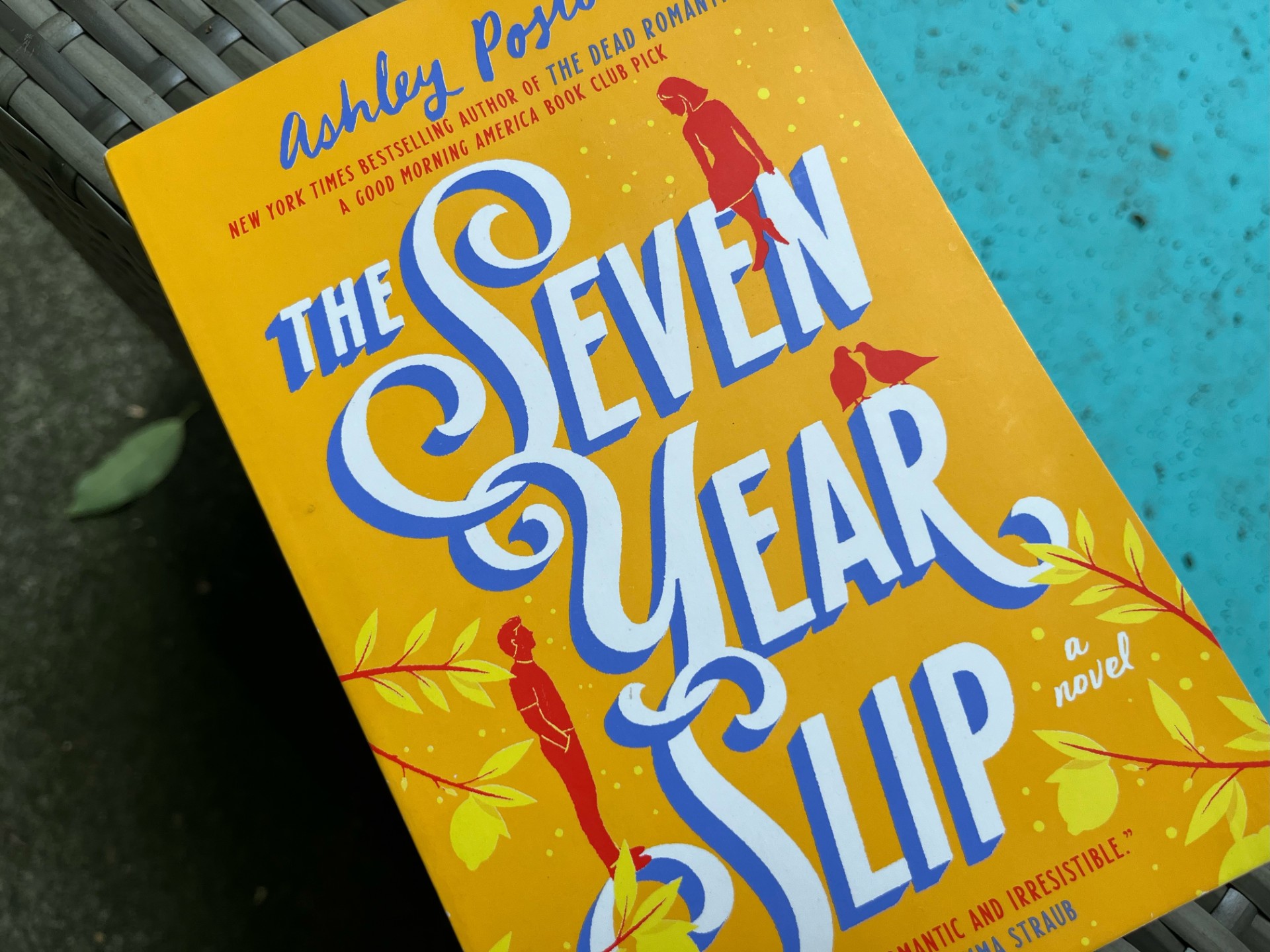“Isn’t it strange how the world works sometimes? It’s never a matter of time, but a matter of timing.”
This unusual romance novel is all about time. It suggests heavily that timing is one of the most influential factors in whether or not a relationship works. It reminds me of the butterfly effect. While I am not sure if I agree with everything the book suggests, it did bring to mind some questions that I would like to explore.
The Background
A quick summary of the concept the book explores is in order to help you with my rambling. The story focuses on a young woman named Clementine who inherits an apartment from her older aunt when she dies. She was very close to her aunt and still struggling greatly with her grief, which is incredibly complicated because her aunt died by suicide. Nevertheless, circumstances force her to move into the apartment. Her aunt used to tell her stories about the apartment, claiming that it occasionally would send its occupant to seven years ago. Her aunt told her about falling in love with the owner of the apartment who lived there seven years before her and warns her not to fall in love with someone from the past.

Not long after she moves in, Clementine is also transported to seven years before. She ends up in the apartment during a time period where an ambitious dishwasher named Iwan is staying while her aunt is out of town. She strikes up a good friendship with him, and, despite her reluctance, starts to feel romantic feelings for him. The situation gets more complicated when she meets him in her present time not long after becoming friends with his past self. She finds him a world-renowned chef, changed, more formal and sophisticated. She mourns that he lost what she considers to be who he was.
As the story unravels she finds herself growing closer to the past Iwan while slowly being drawn in by the pursuit of the present Iwan. She does not think it will work because her aunt’s relationship failed. She thinks Iwan has changed so much that he is no longer the same. Only after he slowly proves to her that change should be expected in someone after years and that his changes have not made him a different person but a better one does she realize that they can work. They finally are able to come together in the present, appreciating each other for who they are.
A Few Thoughts
This story line really intrigued me. I found the idea of meeting your future partner in the past and the present at the same time fascinating. The fact that they were able to remain together was a testament to the strength of their relationship. A few questions came to mind as I thought through this story.
Do relationships rely on timing to succeed?
Throughout a lot of the book, Clementine thinks that the time slip makes it impossible for their relationship to work. She believes that she is in the wrong season of life to maintain a committed relationship. I do believe that timing plays a role in a relationship. Typically, who becomes your significant other arrived at a time that helped to make your relationship possible. For instance, most people did not meet the “person of their dreams” once when they were five and never saw them again until they began a romantic attachment. There is an element of right place, right time to every relationship. However, I believe God orchestrates events to allow for the relationship that we need to become the person He is forming us to be. He manufactures the timing. There is no element of chance in romance.

Is change a bad thing?
Clementine really struggles with the change in attitude and mannerisms she sees in Iwan. She thinks he has lost his unique, informal personality. He slowly shows her that growing as a person and learning to act professionally is not such a bad thing. He admits, however, that he had forgotten some of the ideas that had inspired him to become a chef and refreshes his career because of her. I find this to be a really good message. As someone who struggles with change, I can find it difficult to celebrate when my loved ones find new interests, habits, or lifestyles. But not every change is bad. I can find joy in congratulating them on improvements they make to their life and reminding them when I think they are straying away from important principles they hold.
Should pleasure be an important part of our work?
This is more of a side question, but it was a heavy theme in the book and I wanted to mention it. Iwan loves cooking and works really hard to become the famous chef he aspires to be. He talks often about the “perfect meal” and desires to bring joy with every meal he makes. Clementine, on the other hand, finds that her work as a book publisher has slowly become an aimless pastime. Her work is now merely an obligatory action that is the most important thing to her and also not important at all. She eventually quits her job, deciding she needs to do something she is passionate about. I think that in her case, that is a perfectly sensible decision. She needed something that gave her a sense of purpose and that did not merely waste her energy. However, we cannot always just quit something because we do not get the warm and fuzzies from it. I think it is an important act of discipline to learn how to find pleasure in completing less enjoyable tasks as much as the ones we look forward to.
A Warning
I was quite excited about this book because of the description. I enjoyed the idea of a time-traveling romance. Unfortunately, this book had some heavy gay undertones. Two gay couples were mentioned several times throughout the story. They were written in a way where you could read them the same as any other couple, which made it slightly worse. The subtle references are as dangerous as the explicit ones, sometimes more because they sneak up on you. In addition, there was a pretty heavy physical scene described about Clementine and Iwan that I had to skip over close to the end. While I chose to finish the book after finding these things, I would encourage you to use your conscious about these elements of sin listed.

I did, however, really appreciate the serious way that the suicide element was presented in the book from the eyes of a friend of the victim. I think it was written in a very balanced nature and is a huge mark in favor of the book. The struggle between blaming the victim and also feeling as though it is your fault I think is experienced by many people who go through that. It gives us a great tool in helping family and friends of victims and understanding what they go through.
The Seven Year Slip explored a new concept that I was quite excited about. While it took it in a different direction than I expected, there were some good elements I found in the story. It strengthened my belief in God’s sovereignty and reminded me to appreciate the positive changes I see over time in my close friends and relatives. I think it is up to the individual reader as to whether they should read it, but if you choose to, insure that you enjoy the story with a Biblical lens on.
